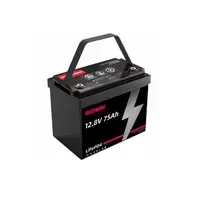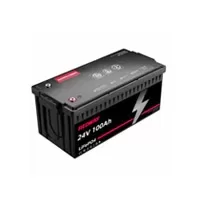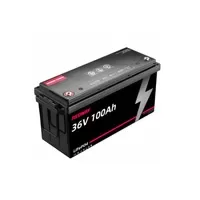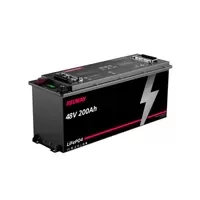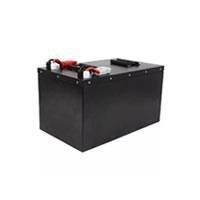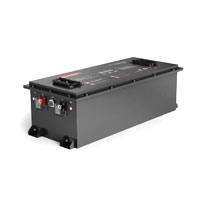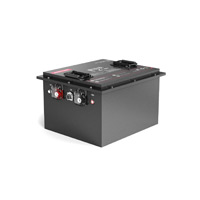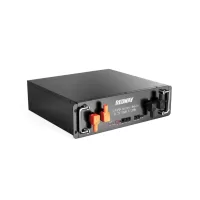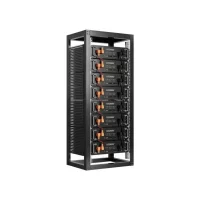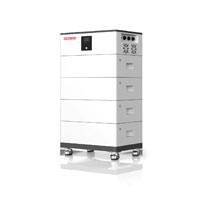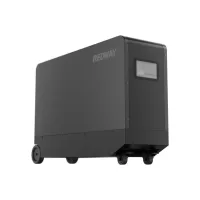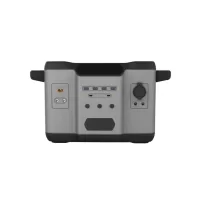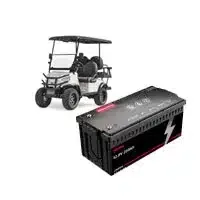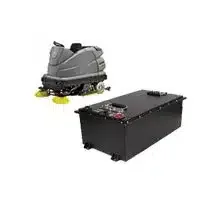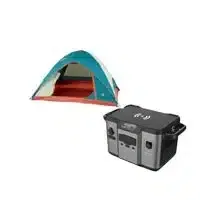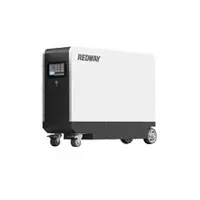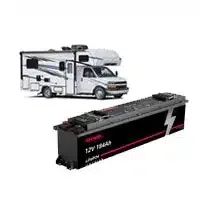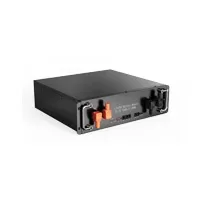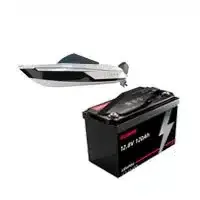Discover the game-changing potential of lithium-ion batteries for your RV adventures. This blog post explores the benefits, dispels misconceptions, and offers tips to maximize the lifespan of these powerful energy storage solutions. Elevate your RV experience to new heights with lithium-ion technology!
The challenges of using traditional lead-acid batteries in RVs
Traditional lead-acid batteries, long used to power RVs, pose challenges prompting RV owners to explore alternatives. Here are key drawbacks of lead-acid batteries:
- Limited Lifespan:
- Costly Replacements: Lead-acid batteries typically last only a few years, leading to frequent and costly replacements for RV owners, impacting reliability.
- Weight and Size:
- Bulky and Heavy: The bulkiness and weight of lead-acid batteries occupy valuable space in compact RVs, limiting storage options and diminishing overall travel comfort.
- Slow Charging:
- Extended Recharge Times: Compared to lithium-ion alternatives, lead-acid batteries have slower charging times, requiring several hours or even days for a full recharge, causing inconvenience during travels.
- Higher Maintenance:
- Regular Checks and Charges: Lead-acid batteries demand frequent fluid level checks and occasional equalization charges for optimal performance. Neglecting maintenance tasks can lead to decreased battery life or failure.
While traditional lead-acid batteries have been reliable, these challenges prompt RV owners to consider the advantages offered by more advanced lithium-ion technology.
Advantages of using lithium-ion batteries in RVs
Using lithium-ion batteries in RVs offers several advantages over traditional lead-acid counterparts, enhancing overall performance and convenience.
- Longer Lifespan:
- Extended Durability: Lithium-ion batteries outlast lead-acid counterparts, providing up to ten years or more of reliable service with proper maintenance, reducing the frequency of replacements.
- Lightweight and Compact:
- Improved Efficiency: Lithium-ion batteries’ lighter and more compact design is ideal for RVs with limited space. This not only facilitates easier installation but also contributes to enhanced fuel efficiency and improved vehicle handling.
- Higher Energy Density:
- Extended Power Capacity: Lithium-ion batteries boast higher energy density, storing more power in a smaller space. This results in prolonged battery life and increased capacity to power various onboard appliances without concerns about running out of energy.
- Faster Charging Times:
- Quick Recharge: Lithium-ion batteries charge at a significantly faster rate compared to lead-acid, ensuring swift replenishment of the RV’s battery bank when needed.
- Maintenance-Free Operation:
- Effortless Use: Lithium-ion batteries require minimal maintenance, eliminating the need for regular checks and cleaning. This contributes to reliable performance during your RV travels without the hassle of constant upkeep.
- Deep Cycling Capabilities:
- Extended Off-Grid Adventures: Lithium-ion batteries excel at deep cycling, allowing nearly complete discharges without compromising lifespan or performance. This is advantageous for RV owners embarking on extended off-grid journeys.
- Cooler Operating Temperature:
- Temperature Efficiency: Lithium-ion technology operates at lower temperatures, reducing the risk of overheating or damage during high ambient temperatures often encountered during summer camping trips.
- Environmentally Friendly:
- Green Technology: Lithium-ion technology is considered environmentally friendly, with higher energy efficiency and recyclability potential compared to traditional lead-acid batteries.
In summary, the switch to lithium-ion batteries in RVs brings numerous benefits, ensuring a longer lifespan and enhanced performance for a more enjoyable travel experience.
Common misconceptions about lithium-ion batteries in RVs
Several misconceptions surround the use of lithium-ion batteries in RVs, often fueled by outdated information. Clearing these misconceptions is crucial for making informed decisions about adopting this advanced battery technology.
- Safety Concerns:
- Modern Technology: Contrary to the belief that lithium-ion batteries are unsafe in RVs, advancements in technology have rendered them safe when handled properly. Following recommended guidelines ensures secure use.
- Cost Perceptions:
- Long-Term Value: While initial costs may be higher, the misconception that lithium-ion batteries are too expensive overlooks their long-term benefits. These batteries offer an extended lifespan, reduced maintenance, and more efficient energy storage, justifying the upfront investment.
- Electrical System Modifications:
- Simplified Installation: Some think switching to lithium-ion batteries necessitates extensive modifications to the RV’s electrical system. In reality, while minor adjustments may be needed, the installation process is generally straightforward and can be carried out by a professional technician.
- Power Capacity Improvement:
- Deeper Discharge Capability: A common misconception is that lithium-ion batteries do not enhance overall power capacity compared to lead-acid batteries. In fact, they provide more usable capacity due to their ability to handle deeper discharges effectively.
- Impact of Solar Panels or Generators:
- Integrated Protection Mechanisms: Some believe that directly connecting solar panels or generators without controllers or inverters affects battery cycles. Most modern systems, however, incorporate protective measures such as charge controllers and inverters to ensure proper charging and discharging without compromising battery health.
Understanding and dispelling these misconceptions is essential for those considering the switch to lithium-ion batteries in their RVs.
Things to consider before switching to lithium-ion batteries for your RV
Before embracing lithium-ion batteries for your RV, several key considerations can influence your decision. Evaluating your power needs, understanding the initial investment, ensuring compatibility, and prioritizing safety are crucial steps in making a well-informed choice.
- Assessing Power Needs:
- Energy Density: Lithium-ion batteries excel in providing more power in a smaller, lighter form. However, their benefits may be unnecessary if you seldom boondock or frequently use shore power. Understanding your specific power requirements is vital.
- Evaluating Costs and Benefits:
- Long-Term Savings: While lithium-ion batteries come with a higher upfront cost, their extended lifespan and lower maintenance expenses over time should be considered. Assess your budget to determine if the long-term advantages justify the initial investment.
- Checking Compatibility:
- System Requirements: Lithium-ion systems often demand specialized chargers and management systems. Ensuring compatibility with your RV setup is essential. Upgrading or modifying existing systems may be necessary for effective integration.
- Prioritizing Safety:
- Careful Handling: Safety precautions are paramount when adopting lithium-ion technology. While generally safe when used correctly, careful monitoring during charging and discharging processes is crucial. Prioritize safety to prevent mishaps.
By carefully considering these factors, including power needs, costs, compatibility, and safety measures, you can make an informed decision about whether transitioning to lithium-ion batteries aligns with your RV adventures.
Installation process and cost comparison between lead-acid and lithium-ion batteries
Choosing between lead-acid and lithium-ion batteries for your RV involves considering the installation process and comparing costs. These factors significantly impact your RV experience.
- Installation Process:
- Electrical System Modifications: Switching to lithium-ion batteries may require adjustments to your RV’s electrical system. While this might seem challenging, many RV owners find the effort worthwhile for the benefits gained in the long run.
- Cost Comparison:
- Upfront Costs vs. Long-Term Savings: Lithium-ion batteries have a higher upfront cost compared to lead-acid batteries. However, focusing on long-term savings is crucial. With a longer lifespan and lower maintenance requirements, lithium-ion batteries offer advantages that outweigh their initial expense.
- Performance Benefits:
- Energy Efficiency and Faster Charging: Lithium-ion batteries provide greater energy efficiency and faster charging compared to lead-acid counterparts. This translates to more power for your RV appliances without compromising battery life.
Considering both the installation process and the cost comparison between lead-acid and lithium-ion batteries will help you make an informed decision about the best power source for your RV adventures.
Tips for maximizing the lifespan of your lithium-ion RV battery
To extend the lifespan of your lithium-ion RV battery, follow these practical tips for optimal performance and longevity.
- Proper Charging:
- Invest in a Quality Charger: Use a charger specifically designed for lithium-ion batteries to avoid overcharging or undercharging. Follow the manufacturer‘s guidelines for optimal charging practices.
- Temperature Control:
- Avoid Extreme Temperatures: Shield your battery from excessive heat or cold, as extreme temperatures can degrade its capacity. Park your RV in shaded areas during hot weather and insulate the battery to mitigate temperature effects.
- Regular Maintenance:
- Monitor Voltage and Inspect: Conduct regular maintenance by monitoring voltage levels, inspecting for damage, and cleaning terminals to prevent corrosion. This routine check ensures the battery stays in good condition.
- Optimal Discharge Levels:
- Avoid Deep Discharges: While lithium-ion batteries tolerate deeper discharges better than lead-acid counterparts, maintaining an optimal charge level (above 20-30%) helps preserve their overall lifespan.
- Avoid Overloading:
- Mindful Electrical Usage: Prevent overloading by using power-hungry appliances cautiously. Consider energy-efficient alternatives to manage electrical demands effectively.
- Safe Storage:
- Full Charge for Storage: Before long-term storage, fully charge the battery and disconnect loads to prevent drainage. Safe storage practices during periods of non-use contribute to prolonged battery life.
By adhering to these straightforward tips, you can ensure your lithium-ion RV battery performs optimally and lasts through your road adventures. Remember, proactive care is key to maximizing its longevity.


